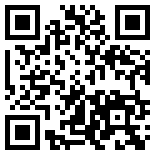Talking about Habits 談?wù)撊粘I盍?xí)慣的英文對話
(1) A:Oh,youlooktired!When didyougotobedlast night ? B:Itwaspastl2o 'clock. A: 'tyougotobedearlier? B: 'tfallasleep ifIgotobedearlier. A: 'syourso-called=biological clock‘! B:Iam usedto it. A:Well, it 's a very bad habit, and it 's bad foryour health!It means that youcan 't begetting enough rest but still have to getup early in the morning to go 'dbettermakesomechanges. B:Oh, ' . A:lam . B:Yes,Ithinkso. A:Doyou have mealsontime ? B:Iamsobusythatlcannothave mealsontimeeveryday. A:You should do your best to have mealson time. Tryto form good habits andkeephealthy. You know, a good living habit isthe :I . A:Youarewelcome. (2) A:Howlenvyyou!You always lookso healthy. B:Good habitshelpa . A:I 'd ? B:Certainly. Everyday, I get up early and then do some morning exercise inmygarden before I go to work. You know, the fresh air makes me happyandenergetic for the whole busy day. In the evening, I go to bed on time to haveenoughrest. A:Whatelse? B:Idrinkalotofwater, andldon 'thave 's more, leat plentyofhigh-fibre foods, such as fruits, vegetables, beans and grains. They areallnutritiousfoodsand importantformyhealth. A:Isee. Howdoyou reducestressfromworkand study? B:In my spare time, I do a lot of things with my friends like going for walks,goingto the KTV and so on. It not only relaxes me, but it can also give me moreenergyand helps metobemoreefficient. (3) A:What 'swrongwithyou?You have been forgetful recently. It is avery badhabittogetinto. B:TheCollege Entrance Examination iscoming up. lam soworried about itthatIcan 'tsleep. A:It is important for you to keep a cool head at the moment. In addition to agoodreview,goodsleeping habitsareveryhelpful. B:I know. Butl reallycan '. A:I am sorry to hear that. Take it easy before you go to is good for youtolistentosomelightmusic. B:. 東莞韋博英語老師譯文:(1) A:哦,,你看起來很累?昨晚什么時候睡覺? B:12點(diǎn)以后。 A:太晚了.為什么不早點(diǎn)睡覺呢? B:我總是睡覺很退。如果太早了睡不看覺,。 A:我知道,。那是所謂的生物鐘. B:我習(xí)慣了。 A:這是個很壞的習(xí)慣,對你的身體健康有害,。你得不到足夠的休息,早上又要早起上班,。所以你比較好改變一下,。 B:好的,我知道了.我會試看去做,,有時我覺得很虛弱,。或許我的健康狀況很差,。 A:我很遺憾聽到這,。我想那跟你的生活習(xí)慣有關(guān)。 B:是的,。我也這樣覺得,。 A:我總是很忙.不能每天按時就餐,。 A:你應(yīng)該盡可能的按時就餐,。盡量形成好的習(xí)慣,保持健康,。你知道,,一個好的生活習(xí)慣是成功的關(guān)鍵。B:我明白了,。謝謝你的建議,。 A:不用謝。 東莞韋博英語老師譯文:(2) A:我多羨慕你!你看起來總是很健康,。 B:好的習(xí)慣會有很大幫助.對我來說,,它是保持健康的關(guān)鍵。 A:我想了解更多,。你能跟我說說你的好習(xí)慣嗎? B:當(dāng)然,。每天,我起床很早,,然后在上班前在花園里做運(yùn)動,。你知道,清新的空氣讓我覺得很愉快,,忙碌的一整天里都充滿活力.晚上,,我準(zhǔn)時睡覺,有足夠的休息,。 A:還有嗎? B:我喝很多的水,,但是不吃油膩的食品。而且,,我吃大量的高纖維食物,,比如,,水果,蔬菜,,豆類和谷類食物,。它們都是很有營養(yǎng)的食物,對身體健康很重要,。 A:我明白了,。你是如何減少工作和學(xué)習(xí)的壓力的? B:在我的空余時間,我和我的朋友做很多的事情,,去散步,,去KTV等.它不僅讓我放松,而且讓我更有能量,,更有效率,。 東莞韋博英語老師譯文:(3) A:你怎么啦?近總是丟三落四的。這是一個非常壞的習(xí)慣,。 B:高考就要來了,,我很擔(dān)心以至于睡不看覺。 A:這時候保持頭腦冷靜很重要,。除了復(fù)習(xí)好外,,良好的作息習(xí)慣也是很有用的。 B:我知道,。但是我是真的睡不看覺,,一整晚都熬夜。我簡直要瘋了. A:我很遺憾聽到你這樣說,。睡覺前放松些.睡前聽些輕音樂對你有好處. B:我試試,。謝謝。 Words, expressionsand Notes單詞,、詞句和注釋makesomechanges作出一些改變 feelweak覺得虛弱 form good habits形成好習(xí)慣 That 'syourso-called=biological clock‘. 那是所謂的生物鐘,。 That 'saverybad habit, and it's bad foryourhealth那是個很壞的習(xí)慣,對你的身體健康有害,。 Ithassomethingtodowithyourdailyhabits. 它跟你的生活習(xí)慣有關(guān),。 Good living habits arethe keytosuccess. 良好的生活習(xí)慣是成功的關(guān)鍵。 comingup=approaching接近的
(1) A:Oh,youlooktired!When didyougotobedlast night ? B:Itwaspastl2o 'clock. A: 'tyougotobedearlier? B: 'tfallasleep ifIgotobedearlier. A: 'syourso-called=biological clock‘! B:Iam usedto it. A:Well, it 's a very bad habit, and it 's bad foryour health!It means that youcan 't begetting enough rest but still have to getup early in the morning to go 'dbettermakesomechanges. B:Oh, ' . A:lam . B:Yes,Ithinkso. A:Doyou have mealsontime ? B:Iamsobusythatlcannothave mealsontimeeveryday. A:You should do your best to have mealson time. Tryto form good habits andkeephealthy. You know, a good living habit isthe :I . A:Youarewelcome. (2) A:Howlenvyyou!You always lookso healthy. B:Good habitshelpa . A:I 'd ? B:Certainly. Everyday, I get up early and then do some morning exercise inmygarden before I go to work. You know, the fresh air makes me happyandenergetic for the whole busy day. In the evening, I go to bed on time to haveenoughrest. A:Whatelse? B:Idrinkalotofwater, andldon 'thave 's more, leat plentyofhigh-fibre foods, such as fruits, vegetables, beans and grains. They areallnutritiousfoodsand importantformyhealth. A:Isee. Howdoyou reducestressfromworkand study? B:In my spare time, I do a lot of things with my friends like going for walks,goingto the KTV and so on. It not only relaxes me, but it can also give me moreenergyand helps metobemoreefficient. (3) A:What 'swrongwithyou?You have been forgetful recently. It is avery badhabittogetinto. B:TheCollege Entrance Examination iscoming up. lam soworried about itthatIcan 'tsleep. A:It is important for you to keep a cool head at the moment. In addition to agoodreview,goodsleeping habitsareveryhelpful. B:I know. Butl reallycan '. A:I am sorry to hear that. Take it easy before you go to is good for youtolistentosomelightmusic. B:. 東莞韋博英語老師譯文:(1) A:哦,,你看起來很累?昨晚什么時候睡覺? B:12點(diǎn)以后。 A:太晚了.為什么不早點(diǎn)睡覺呢? B:我總是睡覺很退。如果太早了睡不看覺,。 A:我知道,。那是所謂的生物鐘. B:我習(xí)慣了。 A:這是個很壞的習(xí)慣,對你的身體健康有害,。你得不到足夠的休息,早上又要早起上班,。所以你比較好改變一下,。 B:好的,我知道了.我會試看去做,,有時我覺得很虛弱,。或許我的健康狀況很差,。 A:我很遺憾聽到這,。我想那跟你的生活習(xí)慣有關(guān)。 B:是的,。我也這樣覺得,。 A:我總是很忙.不能每天按時就餐,。 A:你應(yīng)該盡可能的按時就餐,。盡量形成好的習(xí)慣,保持健康,。你知道,,一個好的生活習(xí)慣是成功的關(guān)鍵。B:我明白了,。謝謝你的建議,。 A:不用謝。 東莞韋博英語老師譯文:(2) A:我多羨慕你!你看起來總是很健康,。 B:好的習(xí)慣會有很大幫助.對我來說,,它是保持健康的關(guān)鍵。 A:我想了解更多,。你能跟我說說你的好習(xí)慣嗎? B:當(dāng)然,。每天,我起床很早,,然后在上班前在花園里做運(yùn)動,。你知道,清新的空氣讓我覺得很愉快,,忙碌的一整天里都充滿活力.晚上,,我準(zhǔn)時睡覺,有足夠的休息,。 A:還有嗎? B:我喝很多的水,,但是不吃油膩的食品。而且,,我吃大量的高纖維食物,,比如,,水果,蔬菜,,豆類和谷類食物,。它們都是很有營養(yǎng)的食物,對身體健康很重要,。 A:我明白了,。你是如何減少工作和學(xué)習(xí)的壓力的? B:在我的空余時間,我和我的朋友做很多的事情,,去散步,,去KTV等.它不僅讓我放松,而且讓我更有能量,,更有效率,。 東莞韋博英語老師譯文:(3) A:你怎么啦?近總是丟三落四的。這是一個非常壞的習(xí)慣,。 B:高考就要來了,,我很擔(dān)心以至于睡不看覺。 A:這時候保持頭腦冷靜很重要,。除了復(fù)習(xí)好外,,良好的作息習(xí)慣也是很有用的。 B:我知道,。但是我是真的睡不看覺,,一整晚都熬夜。我簡直要瘋了. A:我很遺憾聽到你這樣說,。睡覺前放松些.睡前聽些輕音樂對你有好處. B:我試試,。謝謝。 Words, expressionsand Notes單詞,、詞句和注釋makesomechanges作出一些改變 feelweak覺得虛弱 form good habits形成好習(xí)慣 That 'syourso-called=biological clock‘. 那是所謂的生物鐘,。 That 'saverybad habit, and it's bad foryourhealth那是個很壞的習(xí)慣,對你的身體健康有害,。 Ithassomethingtodowithyourdailyhabits. 它跟你的生活習(xí)慣有關(guān),。 Good living habits arethe keytosuccess. 良好的生活習(xí)慣是成功的關(guān)鍵。 comingup=approaching接近的


